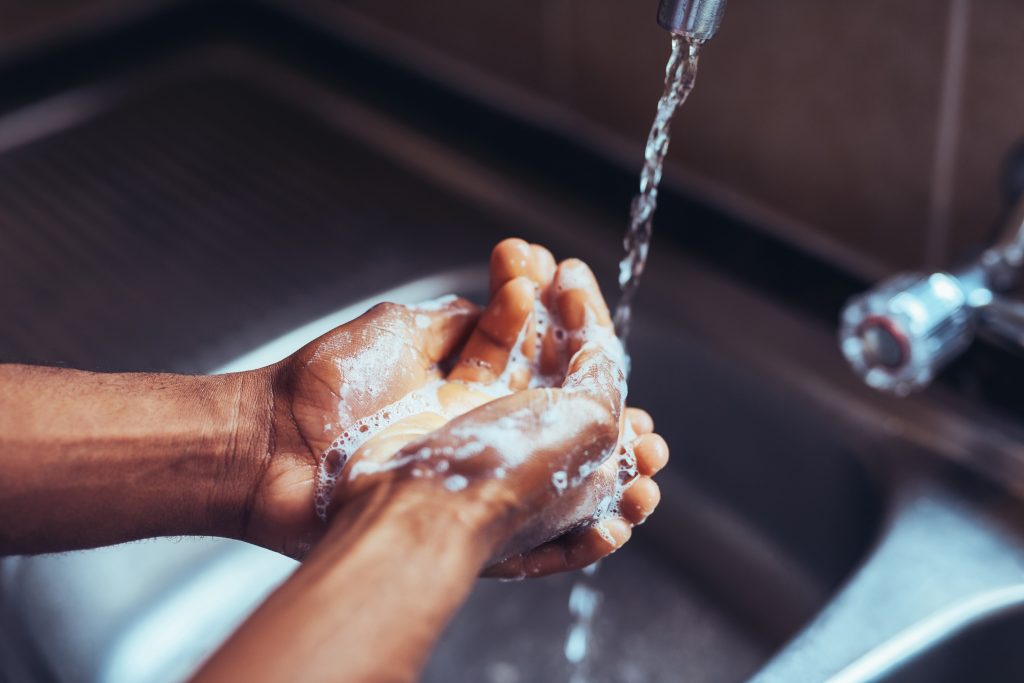
By Professor Stefan Krause, Professor David M Hannah and Professor Iseult Lynch – School of Geography, Earth and Environmental Sciences, University of Birmingham
Never has the urgent call for action on Sustainable Development Goal (SDG) 6 to “ensure availability and sustainable management of water and sanitation for all” been so evident to so many people.

The current COVID-19 pandemic makes us acutely aware how crucial access and ability for adequate hand hygiene are for reducing transmission risks of communicable diseases. Good hand hygiene is critical to protecting your health and those around you.
Indeed, regular and thorough handwashing is promoted as one of the most important contributions individuals and households can make to reducing transmission of diseases, including COVID-19.
Advice to ‘wash your hands’ thoroughly – 20-seconds of lathering with soap – may seem easy to follow, yet millions globally cannot reliably access the water and soap necessary for handwashing. Moreover, more frequent handwashing places further demands on already limited water supplies, exacerbating the challenges faced by communities in water scarce areas. Climate change, population growth, and displacement of people present additional challenges by altering water availability, accessibility, and demand.
Water insecurity and limited opportunities for sanitation and hygiene are everyday challenges in many communities across our planet. UN data (2017) indicates that 40% of the world population (64% in low income countries) lack basic handwashing facilities with soap and water at home – that’s 3 billion people at increased risk from COVID-19.
Opportunities to follow best practices for hand hygiene are limited severely for many people in lower and middle income countries (LMICs) where two out of every five individuals lack access to a basic handwashing facilities. This can be because of meteorological or hydrological limitations in water availability; many who are unable to wash their hands and sanitise appropriately are in living in arid and semi-arid environments or informal settlements with limited water infrastructure.
Additionally, problems with quality and accessibility of water often present barriers to handwashing. Water may be supplied, but too expensive, too inaccessible or too polluted for hygiene. Limited access to adequate sanitation becomes an increasing problem in higher income countries, for example, some 15 Million people in the United States are without access to water as they cannot afford their water bills. In many Western societies in particular, poor people being forced to use communal and shared public facilities puts them at extra risk.
While safe water for handwashing and hygiene is a major challenge in many LMICs, the COVID-19 pandemic highlights markedly that poorer households in higher income nations do not have reliable access to safe water for handwashing.
According to the World Health Organisation (WHO), diarrhoea, predominantly caused by polluted water and water borne diseases is the second biggest cause of death in children under five years old (after malnutrition); and there are around 1.7 billion cases of childhood diarrhoeal disease annually (of which approximately 2 million die).
Never has the urgent call for action on Sustainable Development Goal (SDG) 6 to “ensure availability and sustainable management of water and sanitation for all” been so evident to so many people.
The current COVID-19 pandemic makes it clear that access to water and sanitation is a basic human right. Clean water allows good hand hygiene and is, of course, also vital for drinking and preparing food. We must invest now in water infrastructure and water governance – that’s to say the way water is managed and provisioned. This will help to ensure that communities and individuals everywhere can wash their hands safely.
For those with access to stable water supplies, re-education as to the value of water and how to use it sustainably is needed urgently; supplies will not continue to meet demand as populations grow and human demands change. We need to address these ‘wicked water problem’ to combat the current and anticipated future critical disease outbreaks and, in turn, improve livelihoods and save lives.
With thanks to Professor Sera L. Young and Joshua Miller from the Department of Anthropology, Institute for Policy Research, Northwestern University, Chicago, as well as Dr Feng Mao, Cardiff University for their valuable contributions to this discussion.










